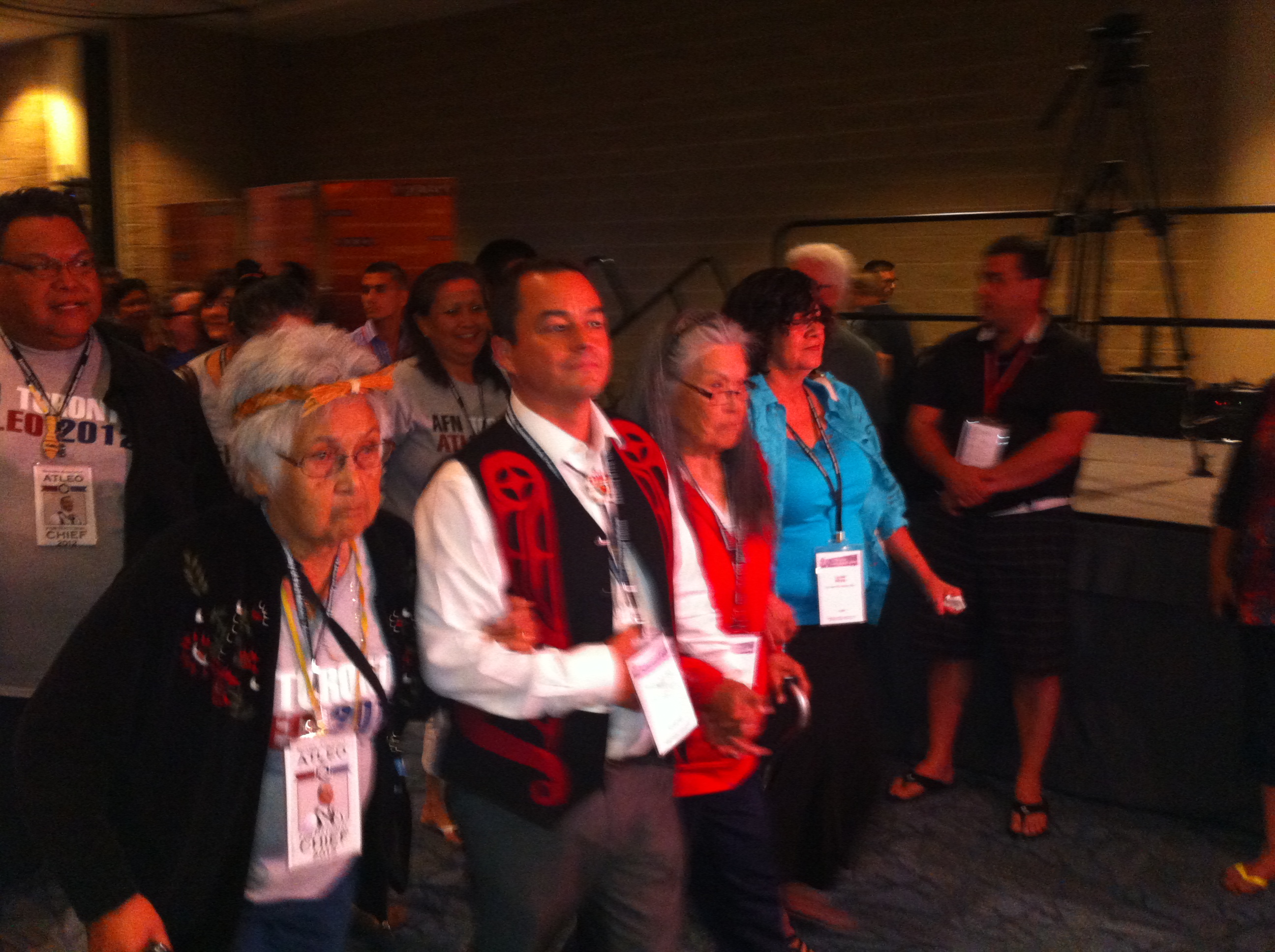First it was #IdleNoMore and now it’s #AtleoNoMore.
Shawn Atleo, National Chief of the Assembly of First Nations (AFN), serving his second term, has resigned on Friday April 2, 2014.
This move comes amidst a raging debate about the meaning of First Nations sovereignty as expressed in his support for the Harper backed First Nations Control of First Nations Education Act.
He said Friday he was no longer willing to be a “lightning rod” for criticism of the bill.
This has triggered the federal government to put the education act on hold until the AFN has a chance to clarify its position in light of Atleo’s resignation. This announcement was made by Minister of Aboriginal Affairs Bernard Valcourt’s office on the following Monday April 5, 2013.
Alteo is often described as a pragmatist by his supports and a sell-out by his detractors, as he supported Stephen Harper’s revised legislation for Indigenous education; a bill which was first introduced into parliament back in February 2014.
The first stage of this legislation was introduced last fall and was met with vocal criticism that continues to this day. At a special meeting by the AFN in December 2014, the chiefs listed their concerns and several conditions that the bill must meet. Atleo had already pledged his support for Harper by this time.
Thus, supporters also considered the close relationship between the Harper government and the Assembly of First Nations chief to be a positive step forward in settler-Indigenous relationship.
But opponents of the bill – from grassroots individuals to oppositional regional chiefs – felt it gave too much control to the Minister of Aboriginal Affairs, didn’t protect treaty rights and the government funding attached to implement the bill fell short of what is actually needed to make a difference in the lives of First Nations children and youth. With the bill now on hold, and the AFN now leaderless, it’s anyone’s guess what’s next.
In an emailed statement to the CBC from Valcourt’s office: “Given the recent resignation of the national chief, following today’s second reading vote, any further consideration of this legislation will be put on hold until the AFN clarifies its position.”
On the Friday of his resignation, Atleo read from a prepared statement saying, “”I have stated clear priority on the recognition of treaty, of indigenous rights and title, on the safety and security of our most vulnerable, and I have also made my priority on education for our kids plainly clear.”
He went on to comment about his relationship with the Harper government by saying, “The current proposal on education is the latest attempt and a sincere, constructive effort on the part of Prime Minister Stephen Harper to take a step forward.”
But it seems now that it is Atleo who has taken a step back.
Atleo was currently serving his second term as AFN National Chief. He won his re-election campaign at the AFN convention in Toronto in July 2012.
You can read about it here:
Activist Communiqué: Assembly of First Nations elections, a report from Day One
Activist Communiqué: Report back from Day Two of the Assembly of First Nations – Election Day
Atleo scored a second ballot victory for his second term as AFN National Chief. Mi’kmaq lawyer and Ryerson University professor, Pam Palmater, received the next highest amount of votes, and she has been nipping at Atleo’s heels ever since.
“I’m not looking for his job,” she told CBC News earlier this week. “Now individual chiefs are making the same call, but I’m making that call because Shawn Atleo has stopped defending our rights.”
Palmater occasionally writes a blog for rabble called Indigenous Nationhood. You can find it here.
In her blog for May 3, 2014, she writes, With regards to Prime Minister Harper and National Chief Shawn Atleo’s education “deal”, this was not made in a good way, nor in the spirit of unity. In fact, the countless secret meetings, lack of information, and surprise announcements are counter to our traditional ways of building consensus and capitalizing on our strengths and differences in unity.
The biggest problem is that no space was ever made for the possibility that there would be no unity on this deal — the deal was made for us without us at the table. The result is wide-spread distrust, anger and reaction — all justified. Now, our leaders are forced to account to their citizens for decisions of which they had no part, causing even further disharmony amongst our Nations. Yet, none of this had to happen.”




